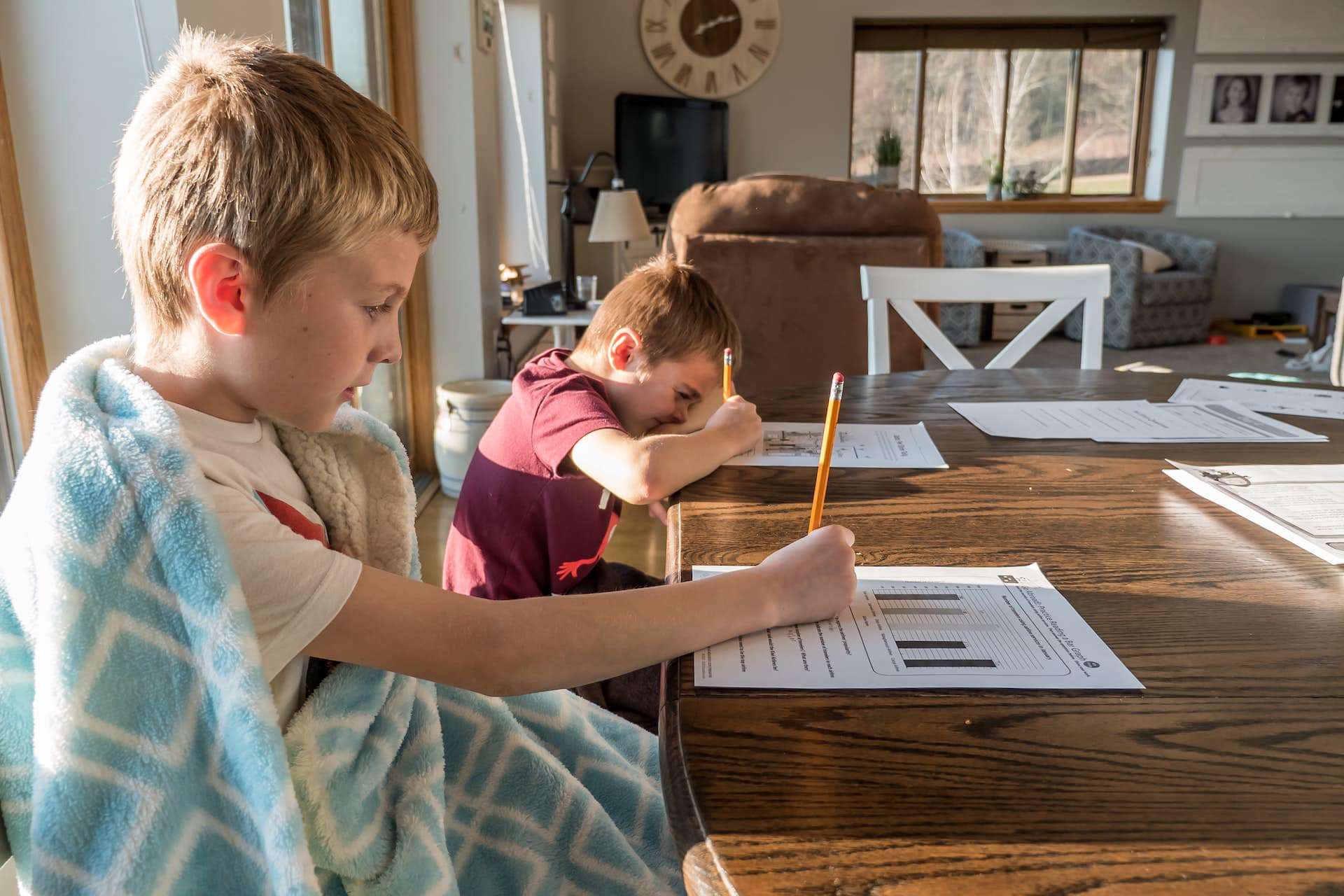Left to their own devices…again! The enduring inequality of lockdown home-schooling
Less than a month into the first national lockdown, I wrote a CREU blog highlighting the dangers of the digital divide. The blog concluded that “unless action is taken in the days to come, the current lockdown and the differentiated experiences of home-schooling have the potential to further disempower and disenfranchise, thus exacerbating the social injustice of an already deeply divided education system.” A subsequent research report based on a large parental survey carried out by our CREU team at Stranmillis confirmed my fears that pupils’ experiences of lockdown home-schooling in Northern Ireland were mediated by their parents’ backgrounds, especially their level of education. We found that better educated parents were more likely to be able to work from home, spent longer on home-schooling, were more directly involved in teaching their children and felt more confident throughout the process, despite the challenges. In contrast parents without university degrees were more likely to be essential/key workers, and often felt under enormous pressure to juggle their work and family commitments, to access online resources, and to motivate their children to engage with learning.

As I write this in January 2021 at the start of the second lengthy period of national lockdown and a return to enforced home-schooling for the vast majority of children, much has changed. Unlike the sun-kissed spring days of last April and May the weather is now cold, dark and (let’s be honest) dreary. The novelty of home-schooling has well and truly worn off to be replaced by lockdown fatigue and a sense of ‘here we go again’, while stretched family budgets must deal with the additional challenge of heating their homes during frosty weather when their children are off school.
However, I think some lessons have definitely been learned.
Teachers are better prepared for online teaching
We must all commend the dedication and commitment of our teachers who have worked incredibly hard to develop a range of digital learning skills since last March, often through the generous sharing of expertise and resources within their own communities of practice (such as @BlendEd_NI). As a home-schooling parent as well as a teacher educator, I can already see how during this second lockdown the confidence and competence of teachers is much greater than before as they embrace a wider range of interactive pedagogies including, this time, more of the recorded/live video sessions which were largely missing from the first lockdown. This time around it is clear that, for teachers, technology is much less of a barrier to be surmounted or even circumvented, and much more of a pedagogical springboard to engagement – that is definitely progress, and is something to celebrate.
Some households are no better prepared for online learning
We must also commend the work of the voluntary and community sector as well as the Education Authority over the past few months in providing digital hardware to those most in need. However, I fear that significant challenges remain in terms of access to laptops, tablets, and printers for home learning in too many households. Broadband access also remains patchy in many rural areas and will take years to improve. How can children be expected to learn remotely when they still don’t have a suitable device to access their resources, when they don’t have a printer to print their work, or when there is no broadband availability in their rural community? There is a world of difference between, on the one hand, waiting for your exhausted key worker parent to return from work in the evening to access your schoolwork on their mobile phone, and, on the other hand, sitting at your own desk with your own laptop and printer and degree-educated parent all available to support the learning process.

And in our preoccupation with tests, examinations and curricular content, let us not forget our commitments expressed following the first lockdown to promote the emotional health and wellbeing of our children, including our youngest learners. As fully expressed in another CREU blog by colleagues Glenda Walsh and Stephanie Gillespie, the September ‘restart’ was to focus on understanding, reassurance, connection and opportunities to play, relax and have fun, not least as a protection against social isolation and an uncertain future. Those principles remain centrally important in the return to remote learning.
SEN pupils spared lockdown home-schooling
Finally, we should be encouraged that in this second extended period of lockdown (unlike in March 2020), it has been decided that special schools should remain open to all pupils. This is not to underestimate the challenges facing special school principals in maintaining their high staffing ratios at a time when so many teachers and classroom assistants are off work, but it does represent a welcome acknowledgement that every effort must be made to provide access to education and on-site health therapies for some of our most vulnerable children and young people.
However, although we have learned much and our spirits have been buoyed by the roll-out of vaccines, my fear remains that this second lockdown is likely to reproduce and exacerbate many of the inequalities of the first. It could lead to a perpetuation of the ‘Matthew effect’ of accumulated advantage we saw then, as the rich get even further ahead and the poor get left even further behind. As we enter this second extended period of home-schooling, we need to work together to learn the lessons of the first lockdown, to honour the commitments we made then, and to ensure that all our children, whether rich or poor, urban or rural, are given equal opportunities not just to learn but to thrive.
Dr Noel Purdy is Director of the Centre for Research in Educational Underachievement
Reasons to study at Stranmillis
Student Satisfaction
Stranmillis is ranked first in Northern Ireland for student satisfaction.
Work-based placements
100% of our undergraduate students undertake an extensive programme of work-based placements.
Study Abroad
All students have the opportunity to spend time studying abroad.
Student Success
We are proud to have a 96% student success rate.
